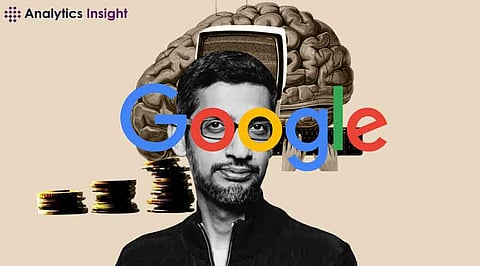

Artificial intelligence will transform many sectors, and thus, Sundar Pichai, CEO of Alphabet Inc. and Google, might also be a strong advocacy catalyst for the notion that AI would be transformational.
Delivering his speech on the future agenda at the United Nations Summit of the Future, Pichai explained to the present crowd how the integration of AI can spur economic development, productivity increase, and develop new opportunities in the entire world.
This article explores what Pichai considers this technology would still transform the economies of the world significantly.
One of the most significant reasons Pichai thinks AI can bring about change is its ability to boost productivity. Research says that AI can raise global labor productivity by 1.4 percentage points annually. This productivity growth is realized through AI's automation of routine tasks, operational optimization, and enhanced insights provided by data analysis.
An example of this would be AI-enabled software tools scanning huge sets of data to detect areas of inefficiency and suggesting alternatives, thus making optimal use of resources as well as time.
AI is also bound to have an enormous impact on economic growth. Pichai says that AI is likely to grow the global GDP by 7% over the next ten years. The growth would be driven by innovations in a wide range of sectors including healthcare, finance, and manufacturing.
AI technologies can also simplify processes, cut costs, and improve the quality of products as well as services. Additionally, the development and implementation of AI systems will create new careers in some of the emerging high-technology industries such as data science, machine learning, and AI ethics.
As asserted by Pichai, AI is transformative to core sectors such as health and education. In healthcare, AI can be put into action to improve diagnostic capacities, personalize treatment plans, and forecast disease outbreaks.
For example, computer algorithms can make extremely accurate diagnoses of medical images. AI can offer learning experiences that meet the different needs of students, learning at their own pace or learning by learning. AI-based educational tools can bridge gaps in quality education, especially for the underprivileged.
In this regard, Pichai says, "AI will bring crucial relief in dealing with climate change, food security, and disaster response. Among them is predicting weather and natural disasters, thereby helping better in terms of preparation and response.
Agriculturally, it includes optimizing crop yields based on healthy soil conditions, weather conditions, and pests.". Such applications render a vision of how AI can support sustainable development and make life in the world even better.
While beneficial in many respects, Pichai points out an urgent call for responsible development and deployment of AI. In this, Google has developed AI Principles to influence the ethical use of AI ensuring that the technology is developed in respect for privacy, fairness, and transparency.
Pichai calls on industry, academia, and governments to join hands for developing suitable frameworks that promote the responsible use of AI. Some of these areas include: bias correction within AI systems, strict data security and user privacy.
Pichai notes that "massive education and training" would be required to realise the full potential of AI, and he also unveiled a $120 million Global AI Opportunity Fund at the UN Summit to proliferate AI education and training worldwide.
Making AI education available in local languages and partnering with nonprofits and NGOs will, thus, support underpinning its access by the poor. The fund aims at democratizing AI by training more people on AI skills so that the benefits are shared together.
Through Pichai's view, AI can change emerging markets through its influence. In regions characterized by infrastructure and connectivity challenges, AI tends to optimize the operations and logistics so that they become effective and cost-saving in operation.
The above solutions make enormous differences in supply chain management, helping products or services delivery in time.
Sundar Pichai thinks AI can revolutionize every sphere of life as it can produce productivity in the economy and can add much more growth and innovation to markets. It also brings an opportunity to make better health, education, and solutions to worldwide problems.
However, this can happen only through responsible development, education, and coordination among those who can make it happen. This advancement of AI is bound to have deep implications on global economies and will shape the future for us in ways we only begin to see today.
